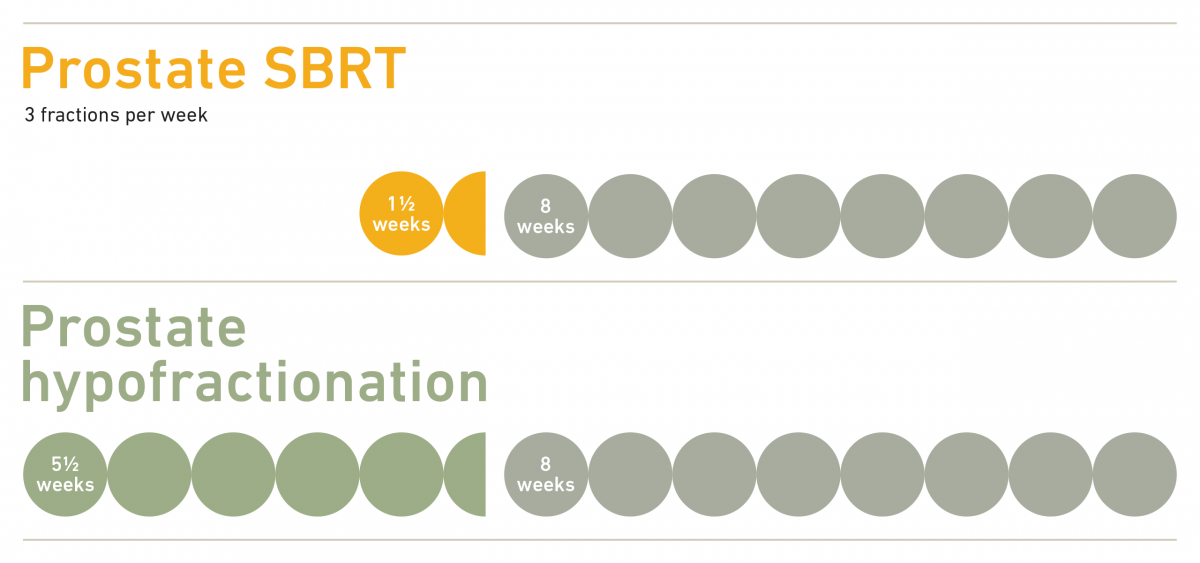
PHILADELPHIA (March 10, 2020) — A 10-year update of a randomized, prospective study conducted by researchers at Fox Chase Cancer Center has found that conventional fractionated and moderate hypofractionated radiation therapy for localized prostate cancer were equally effective.
The study was headed by Eric Horwitz, MD, FABS, FASTRO, chair of the Department of Radiation Oncology at Fox Chase, and a member of the Molecular Therapeutics Program. It is the largest randomized single-institution study of its kind with the longest follow-up to date, he said.
The researchers compared moderate hypofractionated intensity-modulated radiation therapy (H-IMRT) and conventionally fractionated intensity-modulated radiation therapy (C-IMRT) in men with protocol-defined intermediate- and high-risk prostate adenocarcinoma who were randomized to one of the two treatment groups.
IMRT refers to a method for administering powerful doses of radiation with extremely high precision to targeted areas while sparing surrounding healthy organs. Each treatment in radiation is called a fraction. Conventional fractionation is administered five times a week for eight weeks; moderate hypofractionation is administered at a higher dose over less time.
“There was a theory back in the late ‘90s and early 2000s that if you gave more dose per treatment, you would shorten the time of overall treatment and that it would actually be more effective,” Horwitz said. “By the early 2000s we had the ability to safely do that, so we ran our own Phase III trial that involved 300 patients.”
In addition to radiation therapy, men with high-risk disease were prescribed 24 months of androgen deprivation therapy (ADT) and had lymph node irradiation. Men with intermediate risk were prescribed four months of ADT at the discretion of the treating physician.
After five years of study, results published in 2013 showed that treatment with H-IMRT and C-IMRT were equally effective. In 2018 the American Society for Radiation Oncology, the American Society of Clinical Oncology, and the American Urological Association released a joint publication saying hypofractionation should be the standard of care in the United States for treating men with prostate cancer. “Our data was included in that because it’s one of the oldest and best sources of data,” Horwitz said.
“What’s exciting is that we have 10-year randomized prospective data, which is the gold standard for studies, and the original results held up. So the short course of treatment isn’t better, it’s the same. But that’s good because patients get done in five weeks instead of eight weeks. Essentially what the study shows is that it’s effective, it’s safe, and it’s just more convenient.”
The study, “Ten-Year Update of a Randomized, Prospective Trial of Conventional Fractionated Versus Moderate Hypofractionated Radiation Therapy for Localized Prostate Cancer,” was published in the Journal of Clinical Oncology.